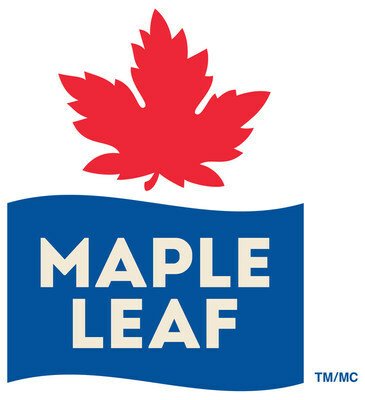Monday, 2 March 2026
Maple Leaf Foods and Maple Leaf Centre commend Canada’s national school food program
Working with provinces and territories, this investment will broaden existing school food programs to reach an additional 400,000 children across Canada Maple Leaf Foods and the Maple Leaf Centre for Food…

Working with provinces and territories, this investment will broaden existing school food programs to reach an additional 400,000 children across Canada
Maple Leaf Foods and the Maple Leaf Centre for Food Security commend the Government of Canada on their announcement to invest $1 billion over the next five years to establish a National School Food Program. Working with provinces and territories, this investment will broaden existing school food programs to reach an additional 400,000 children across Canada.
“Maple Leaf Foods and the Maple Leaf Centre for Food Security are thrilled and thankful that the federal government has acted on their commitment to create a National School Food Program,” said Sarah Stern, Executive Director of the Maple Leaf Centre for Food Security.
“Food insecurity is at crisis levels in Canada, with one in four children living in a food insecure home,” continued Stern. “Food security is fundamental to health and dignity, as well as academic, social and economic potential. Historically, Canada has been the only G7 country without a national school food program. This leadership and action on the part of the federal government addresses this failing and further strengthens our societal net, so that more children in Canada will have the potential to learn and succeed.”
“This commitment builds on decades of work by tireless advocates in the food security sector, who have persevered in their work to see a healthy meal offered in every school. Their vision has been crucial to realising this important public policy milestone.”
“We look forward to working with school food experts, the provinces, territories and federal government to establish a healthy meal program in every school, which will deliver immediate benefit to the millions of children and their families struggling with food insecurity.”
“We will continue to work with the federal, provincial and territorial governments to build on this momentum and take further steps to reduce food insecurity in Canada. We urge governments to set a target to reduce food insecurity by 50 per cent by 2030,” concluded Stern.
Technology
IPC Report Flags Rapidly Deteriorating Food Security across Somalia
Mar 02, 2026 | Africa
University of Florida Develops Vitamin A–Rich Tomato to Tackle Global Deficiency
Mar 02, 2026 | Food
Inside the World’s First AI Centre of Excellence for Chocolate and Cocoa
Mar 02, 2026 | Interaction
Food Testing
Australian Medical Bodies Push for Compulsory Health Star Labelling
Feb 24, 2026 | Australia
Tim Hortons Singapore Secures Majlis Ugama Islam Singapura Halal Certification Ahead of Ramadan
Feb 23, 2026 | Company News
More Popular
Wildbrine Launches Industry-First Fermented Bean Salad
Mar 02, 2026 | Company News
IPC Report Flags Rapidly Deteriorating Food Security across Somalia
Mar 02, 2026 | Africa
University of Florida Develops Vitamin A–Rich Tomato to Tackle Global Deficiency
Mar 02, 2026 | Food






